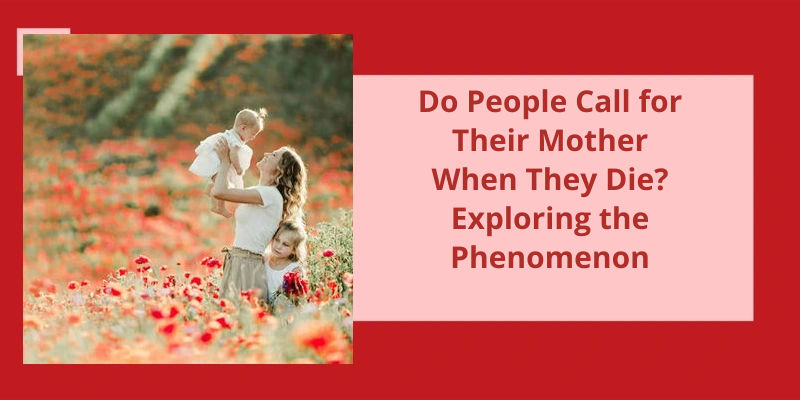How does it feel to care for others? This question delves into the depths of our emotional experiences as human beings. We all have a fundamental desire to feel needed and valued, and the role of a caregiver fulfills that need in a profound way. When we care for others, whether it be family members, friends, or even strangers, we’re bestowed with a sense of purpose and meaning in our lives. It allows us to shift our focus away from the trivialities of our day-to-day routines and redirect it towards the most vital and cherished aspects of life – our relationships with the people we hold dear. The act of caring for others creates a powerful connection that transcends the superficial and taps into the core of our humanity. In exploring the emotional experience of caregiving, we uncover a range of emotions that span from joy and fulfillment to exhaustion and even frustration. It’s a complex tapestry of feelings that intertwines with our own identities and shapes our understanding of compassion and empathy.
What Does Feeling Cared for Feel Like?
Research has demonstrated that feeling cared for is a powerful and transformative experience. It acts as a protective shield against stress, enabling individuals to better navigate the challenges of life. When one feels cared about, they’re more likely to experience increased positive emotions and a sense of well-being. This emotional support promotes resilience, enabling individuals to bounce back from adversity and persevere through tough times. It’s a profound feeling that not only nurtures the self, but also enhances the ability to care for others.
It creates a sense of emotional safety, allowing individuals to fully express themselves without fear of judgment or rejection. Knowing that there are compassionate individuals who’re invested in their happiness and fulfillment creates a nurturing environment for personal growth and self-discovery. Those who feel cared for have the freedom to explore their potential and take risks, knowing that there’s a safety net of support should they stumble or fall.
It fills individuals with a profound sense of gratitude and appreciation for the individuals who extend care towards them. This emotional bond forms the foundation for meaningful and fulfilling relationships, nourishing the soul and enriching lifes journey. It’s a gift that fuels the human spirit, evoking a sense of purpose and fulfillment.
How to Cultivate a Sense of Care in Relationships and Communities
- Listen attentively to others
- Show empathy and understanding
- Be respectful and considerate
- Offer support and encouragement
- Communicate openly and honestly
- Practice active kindness
- Be mindful of others’ needs
- Foster a sense of belonging
- Engage in meaningful conversations
- Express gratitude and appreciation
- Collaborate and cooperate with others
- Show forgiveness and understanding
When you genuinely care for someone, an environment of safety and trust is created, enabling them to open up and share their emotions freely. However, caring goes beyond emotional support. It involves finding practical solutions to help them navigate the challenges of daily life and alleviating their burdens.
What Happens When You Care for Someone?
When you care for someone, you’re actively engaging in the act of empathy and compassion. You’re offering support, understanding, and validation to that person, creating a safe environment for them to open up. By showing that you care, you’re providing an emotional space where they feel comfortable enough to share their thoughts, emotions, and concerns. You’re giving them a listening ear, offering them a sense of comfort, and assuring them that they aren’t alone in their struggles.
Caring for someone goes beyond just emotional support. It involves finding practical ways to help them navigate through their day-to-day lives. This could mean offering assistance with tasks they find challenging or overwhelming, providing necessary resources, or simply being present and accompanying them through various activities. It may involve lending a helping hand with household chores, running errands on their behalf, or taking care of their basic needs when they’re unable to do so themselves.
When you care for someone, you also become a pillar of strength for them. Your presence and support offer stability and reassurance during difficult times. By being there for them, you’re showing that they matter, that their struggles aren’t insignificant, and that their wellbeing is a priority to you. This can have a profound impact on someones emotional state, as it provides them with a sense of security and belonging.
Caring for others can also have a positive effect on the caregiver themselves. It cultivates a sense of purpose and fulfillment, as you’re actively making a difference in someone elses life. Engaging in acts of care can create a deeper understanding of your own emotions and personal growth, as you learn to navigate through different challenges alongside the person you’re caring for. It can also enhance your own emotional intelligence and empathy, making you more sensitive to the needs and experiences of others.
The Benefits of Seeking Support From Support Groups or Professional Counseling for Caregivers.
- Helps to reduce feelings of isolation and loneliness
- Provides a safe space to share experiences and struggles
- Offers emotional support from others who understand
- Provides resources and information on caregiving
- Offers practical advice and tips from experienced caregivers
- Helps caregivers to learn coping mechanisms and stress management techniques
- Provides a non-judgmental environment to express emotions and concerns
- Offers a sense of belonging and community
- Provides educational opportunities on various caregiving topics
- Helps caregivers to develop self-care practices
- Offers a platform to discuss difficult decisions and ethical dilemmas
- Provides a network for potential respite care and support services
- Helps to normalize the challenges of caregiving
- Offers a space for problem-solving and brainstorming
- Provides a platform for advocating for caregiver rights and support
However, it’s important to note that caring for someone goes beyond just having warm feelings towards them. It involves actively taking care of their well-being, supporting them, and being there for them in times of need. While having feelings for someone may be a component of caring, the act of caring itself requires more than just emotional attachment.
Is Caring for Someone the Same as Having Feelings?
Caring for someone goes beyond mere emotions. It encompasses a deeper connection and a genuine concern for another persons well-being. It’s an act of selflessness, where one willingly puts the needs of others before their own. While emotions play a significant role in caring, it isn’t solely dependent on them.
It’s a journey that can evoke a range of emotions, both positive and challenging.
The Emotional Toll of Caregiving: Delve Deeper Into the Emotional Impact of Caregiving, Including Feelings of Guilt, Grief, and Loss, and Discuss Strategies for Coping With These Emotions.
- Delve deeper into the emotional impact of caregiving
- Discuss feelings of guilt, grief, and loss
- Share strategies for coping with these emotions
Conclusion
Caring for others offers us a profound emotional experience that can’t be easily described or quantified. It goes beyond the surface level of simply performing tasks and delves into the realm of heartfelt connections. It reminds us of the intrinsic value of human relationships and how they should take precedence over the mundane distractions that often consume our attention. In these moments of caregiving, we tap into a wellspring of empathy, compassion, and selflessness that brings us closer to the essence of what it means to be human.





